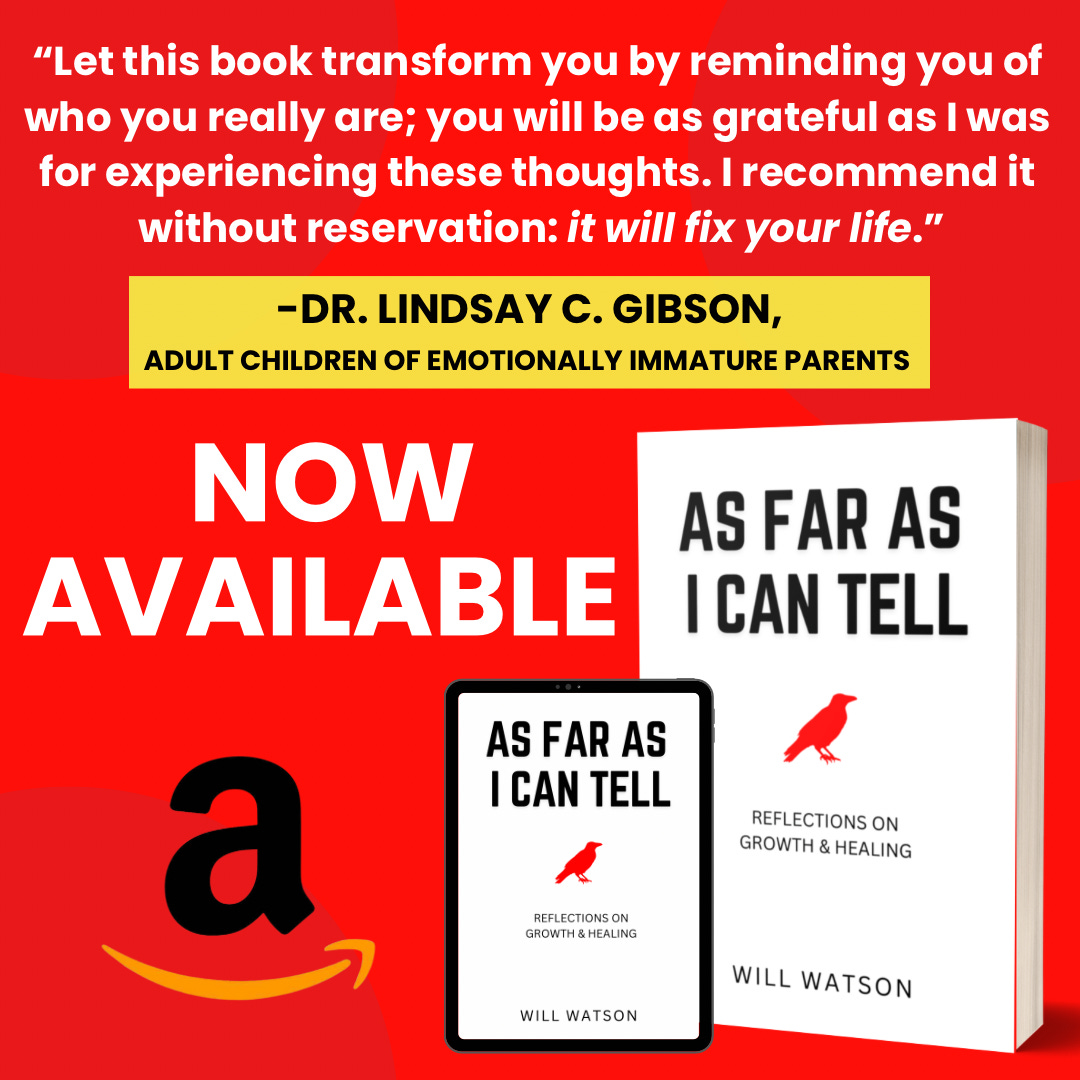If You Always Felt Alone
When the soul to soul connection is missing in childhood
I’ve studied the books, interviewed the experts, and read through thousands of your comments about the topic, but it wasn’t until I was wrestling with this article—struggling to distill for myself exactly what it is that ties our wildly varied experiences as adult children of emotionally immature parents together—that it hit me:
An absence of intimacy in childhood.
As sensitive, vulnerable children, we craved deep, meaningful connections to our parents. We desperately needed to see our reflection in their eyes and to feel the love and acceptance pouring out.
But we didn’t…
Instead, what we saw was distraction. We saw stress. Depression. Addiction. Mental illness. Multigenerational pain.
We saw it all looking up at them, searching their faces for the spark of intimacy—the soul-to-soul connection that would tell us we weren’t alone in the world, that it was safe to be ourselves. But that spark never came.
Brené Brown says, “There is no intimacy without vulnerability,” which makes perfect sense—because few places are more dangerous for the vulnerable than the home of an emotionally immature or toxic parent.
To show vulnerability in that environment—to speak with openness, to seek comforting, to be our truest selves—was to doom ourselves to disappointment, heartbreak, and often, abuse.
So we did the only thing we could do as powerless little children: we closed our little hearts.
Some of us learned to close it to others—keeping people at a distance, refusing to allow anyone close enough to hurt us like that again—but more often, and far more destructively, we closed our hearts to ourselves.
After decades of programming, we came to believe the lies reflected in the eyes and actions of our parents: that we weren’t good enough, that the price of love was being who somebody else wanted us to be, that the only way to stay safe was to lock the deepest parts of who we were so deeply within ourselves that we forgot they were even there.
Fortunately, through the books, conversations, and inner work over these past years, I’ve come to learn that it doesn’t have to stay this way, we don’t have to suffer anymore.
Talk to yourself like someone you love.
- Brené Brown
The truth is, the parts we buried aren’t gone—they’re still there, waiting for us to let them know it’s safe to come back out. We are not broken or beyond hope—our wounds simply need us to give them the care and attention they always deserved. Healing begins when we create that safety for ourselves, within ourselves.
When we stop waiting for others to reflect our worth back to us, when we give ourselves the validation we needed all along—the reminder that we are good and worthy of love—when we make self-care our highest priority and consciously cultivate good energy to replace the pain, we will ultimately find that the intimacy we lacked in childhood lives inside us still.
Although the process of healing never really ends, the hurt can end. No, you can't go back and relive the past, but you can have now what you deserved to have then. As novelist Tom Robbins said: It's never too late to have a happy childhood.
- Jasmin Lee Cori, The Emotionally Absent Mother
Keep going friend, healing and happiness are on the way.
Hey there, thank you so much for taking time out of your day to read my article, it really means a lot to me. If you’re looking for more support on your healing journey, here are some resources that might help:
Recovering From Emotionally Immature Parents Course - featuring Dr. Lindsay C. Gibson.
Book Club & Women’s Support Group - led by Academy of Self Help co-founder Michelle and therapist Nicole Johnson, author of the upcoming book Reparenting Your Inner Child.
Become a Substack Supporter - Subscription Includes:
More personal reflections on topics related to self-healing.
Opportunities to request topics and submit questions for featured authors and mental health professionals.
Access to interviews & workshops with mental health professionals, including exclusive content from Dr. Lindsay C. Gibson on the topics of going no contact and breaking the code with emotionally immature parents:
My book As Far As I Can Tell



I've been trying to wrap my mind around how profoundly lonely I've felt my whole life. It's tough for me to come to terms with it. Being isolated was a survival strategy. Being ignored and rejected was my norm.
I am very grateful for the hard work I’ve done to craft a more curious, neutral, positive (I even sometimes tell myself i’m proud of myself!) internal dialogue bc before that began to click I thought I was stuck with those critical, fearful voices forever. If anyone reads this and thinks they are destined to be stuck in outdated, looping, limiting thought processes please know you can work to minimize them once you get curious about why they are there and what they are trying to do for you.
My internal loneliness I have come to notice as a comfort zone- a place I have always been able to trust. I used to wallow there. I’m no working on being a friend to myself and enjoying my own company. Lots of love to anyone who reads this beautifully composed, hard fought reflection and relates ❤️